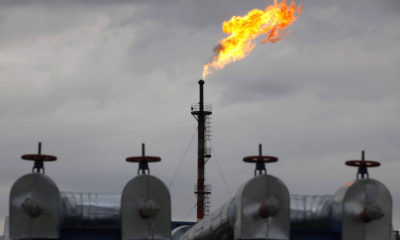- Govt Targets $3.5bn Investments in Gas Flaring
The Federal Government is targeting to attract $3.5bn worth of investments into the country through the Nigerian Gas Flare Commercialisation Programme and has issued letters of qualification to 205 firms that are interested in the NGFCP.
It was gathered that over 850 interested parties registered their interests in the programme while 238 applicants submitted statements of qualification in response to the Request for Qualification published by the Department of Petroleum Resources.
A total of 238 SOQ documents were evaluated in accordance with the provisions of applicable regulations, guidelines and standard DPR practices for bid evaluation and were adjudged either a ‘pass’ or ‘fail’ status.
“Following a rigorous exercise conducted in line with established protocol and using the electronic evaluation tool, 205 applicants emerged successful, attaining a ‘pass status’, while the remaining 33 applicants did not meet the minimum requirements and thus attained ‘fail status’,” the Programme Manager, NGFCP in the Federal Ministry of Petroleum Resources, Justice Derefaka, told our correspondent in Abuja.
It was also learnt that the FMPR recently contacted the 205 firms and told the companies that they were qualified.
The FMPR disclosed this in a letter titled Approval of Submission of Statement of Qualification in response to the request for qualification package of the Nigerian Gas Flare Commercialisation Programme in the Ministry of Petroleum Resources.
In one of the letters signed on behalf of the ministry’s permanent secretary by the Director, Special Duties/Alternate Chairman, NGFCP, Andrew Agi, he told the bidder that “following your submission of Statement of Qualification in response to the request for qualification package of the Nigerian Gas Flare Commercialisation Programme, I am directed to inform you that your application is successful.
“Consequently, your company has been adjudged qualified for the next stage.”
Commenting on the development, Derefaka stated that the NGFCP had the potential of generating approximately $3.5bn of inward investment, adding that the potential Gross Domestic Product impact was estimated at over $1bn per annum.
He said, “It could potentially unlock two to three liquefied natural gas trains, around 3000 megawatts of electricity generation as well as generate about 600,000 metric tonnes of liquefied petroleum gas per year, giving six million households access to clean energy through LPG.”
“The programme could also bring inflow of new infrastructure players to enable gas uptake and usage in previously unreachable regions and business development from gas companies to unlock new domestic markets for gas.”

 Forex2 weeks ago
Forex2 weeks ago


 Naira2 weeks ago
Naira2 weeks ago
 Billionaire Watch1 week ago
Billionaire Watch1 week ago
 Company News4 weeks ago
Company News4 weeks ago




 Naira2 weeks ago
Naira2 weeks ago




 Naira1 week ago
Naira1 week ago




 Naira4 weeks ago
Naira4 weeks ago
 Nigerian Exchange Limited4 weeks ago
Nigerian Exchange Limited4 weeks ago
















